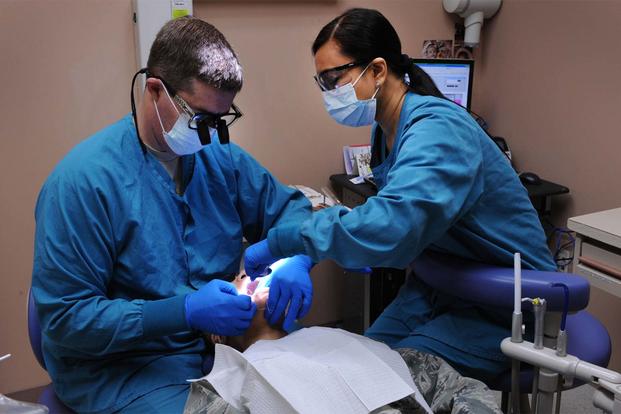Most dental procedures, invasive procedures and surgeries deemed elective will be pushed off the calendar to free up staff and resources for an "expected surge" in patients during the novel coronavirus pandemic, the Defense Department said in a letter to the services Tuesday.
The new postponement policy takes effect March 31, according to the letter. Exceptions will be made, it says, only if they are essential to a service member's deployability and readiness, or if the risk to the patient of delaying the procedure outweighs other safety and logistics concerns.
Among the medical procedures that will be postponed, according to the letter, are aerosol-producing ones, including "endoscopies, bronchoscopies, pulmonary function tests and sleep continuous positive airway pressure (CPAP) titrations."
Assistant Secretary of Defense for Health Affairs Thomas McCaffery's guidance comes after other health care leaders called for an end to most elective procedures, such as laser surgery, hernia repair, non-emergent back surgery and joint replacements. This policy would apply to both medical treatment facilities and dental treatment facilities for 60 days.
"While their surgeries may be elective, this is nonetheless a meaningful change to their life plans," McCaffery advised medical and dental facility commanders. "As you take action, I ask that you be mindful of the impact that canceling or postponing surgery has on our patients, their families and our professional staff."
Related: Military Hospitals Will Stop Offering 'Elective Surgeries,' Esper Says
To obtain an exception to the suspension of these procedures, service members must obtain authorization from the relevant treatment facility commander, including a consultation with a medical or dental specialist.
McCaffery and Defense Secretary Mark Esper have both said the Defense Department has enough personal protective equipment (PPE) and other supplies, but this policy is meant to conserve bed space and free up medical staff to handle an expected influx of patients infected with COVID-19.
"Like everybody else, we're going to face shortages with regard to some of the PPE until the private-sector industry can pick up the slack," Esper said earlier Tuesday in a town hall, adding that the system will "get back to normal" once production is up.
Military medical and dental facilities will not close, and routine appointments, exams and prenatal visits, in addition to urgent care and urgent care, will continue, the letter states.
Patients will be contacted via phone or another means if their procedure is canceled, and those with questions are advised to contact their local military medical or dental treatment facility.
-- Dorothy Mills-Gregg can be reached at dorothy.mills-gregg@military.com. Follow her on Twitter at @DMillsGregg.













